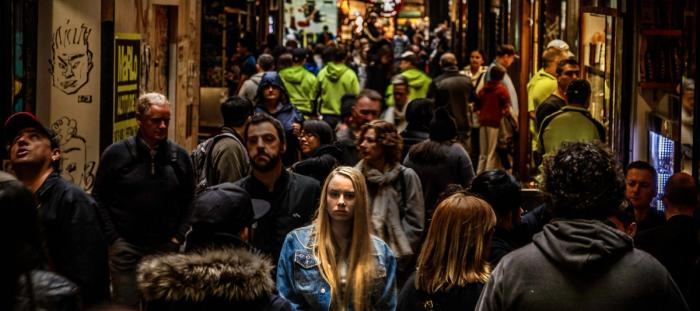Exodus comes from a Greek word meaning “exit” or “departure.” The Exodus happened around either 1240 or 1440 BC. Tradition holds that Moses wrote the book of Exodus. Though scholars speculate and debate, there is no good reason to deny that Moses wrote the book.
The book of Exodus records the history of Israel’s enslavement to Pharaoh and their freedom through a deliverer that God raised up. This deliverer was named Moses, and Moses was given the task of leading his people out of Egypt to the promised land, the land of Canaan. This event was called the Exodus.
Exodus reveals the God who saves his people. From Exodus we come to understand that God is actively involved in history. He hears prayer. He answers. He saves, but God does things in his own way, in his own time, and for his own glory. Exodus teaches us what we should expect from God. Exodus gives us reason to trust God in difficult times. Exodus shows how God is at work to save the world from sin, death, and the devil.
The Story of Exodus
The story begins with Israel as an oppressed people in Egypt. Israel was a foreign people who came to Egypt during a great famine. The pharaoh welcomed them. Years went by. A new pharaoh ascended to the throne, and this pharaoh was unaware of the history of all Joseph did to help Egypt. The pharaoh grew worried by the size of Israel’s population, so he decided to do two things. The first was to force the Israelites into slave labor. The second was to mandate the killing of all newborn male children. It was into this situation that Moses was born.
In an attempt to spare Moses, his mother placed him in a basket and sent him down the Nile River. Farther down the river, Pharaoh’s daughter was bathing and accidentally discovered the baby Moses. She recognized the child as belonging to one of the Israelites, but she had compassion on the boy and adopted him.
After many years and a new pharaoh, God met Moses in a burning bush. There God called him to be his prophet and lead his people to the land of Canaan, but there was a problem. The new pharaoh still held God’s people in slavery. When Moses approached Pharaoh about freeing the Israelites, Pharaoh refused to let them go. Thus, God intervened. He brought plague after plague upon the Egyptians until Pharaoh agreed to let the Israelites leave. It took twelve plagues for Pharaoh to admit defeat.
As Moses and the Israelites began to leave, Pharaoh, still unwilling to admit defeat, changed his mind. He and the Egyptian army pursued the Israelites up to the Red Sea. Moses and the people had come to what looked like a dead end, but God was with them. Through a great miracle, God spread the waters of the Red Sea so that Israel could walk across on dry land. When the Egyptians tried to walk across the parted sea, God released the waves, drowning the Egyptian army.
The Pattern of Salvation
After God saved his people from Egyptian bondage, he began to prepare the world for a salvation from greater slavery. Through the Mosaic Law and Israel’s temple worship, God brought his people into a loving relationship to prepare them for the coming Messiah. The Messiah would come to save the world from sin, death, and the devil. This, Jesus did.
Exodus shapes both Jewish and Christian identity. Its themes are a major part of the Psalms and the Old Testament prophetical books. Many themes in Exodus are taken up in the New Testament and displayed in Jesus’ life, death, and resurrection.
Slavery
Exodus is a book about salvation from slavery. It records the history of Israel’s enslavement to Pharaoh and their freedom through a deliverer that God raised up. This deliverer was named Moses, and Moses was given the task of leading his people out of Egypt to the promised land, the land of Canaan. This event was called the Exodus.
In the United States, people tend to think of the African-American experience in regard to slavery, but let’s think broader than that. Slavery exists in many forms. Some slavery is imposed from the outside; other slavery is within our hearts. Exodus answers both. Exodus gives words of hope to people suffering from injustice and to those suffering from their own demons.
Addiction
One way to think about slavery existing on the inside—within the heart—is through the lens of addiction. I have seen drug addiction up close and personal. No one ever plans to become addicted. If anything, people begin with a desire to escape life. After a while, the addiction becomes a harsh master, and the one addicted becomes a slave. An addict may even begin to steal from friends and family to support the habit—to obey the master. The very thing one uses to find salvation becomes the bondage from which they need saving.
Drug addiction is a clear picture of humanity’s struggle. It shows how ugly life can be. All people desire happiness. The problem is that life is filled with misery. We are victims of our own warped desires, and we are victimizers of other human beings. We need an escape. We need salvation.
Like drug addiction, people don’t break free from life’s struggles alone. They need an intervention. They need someone to come from the outside and save them from the bondage and darkness. This is what God does. He enters into our lives and he saves us from ourselves and the oppression of sin, death, and the devil (Rom. 8:21; Acts 10:38; Eph. 4:27; 6:11; 1 Tim. 3:6).
Liberation
When Jesus began his ministry, he described his mission as proclaiming liberty to the captives:
The Spirit of the Lord is upon me, because he has anointed me to proclaim good news to the poor. He has sent me to proclaim liberty to the captives and recovering of sight to the blind, to set at liberty those who are oppressed, to proclaim the year of the Lord’s favor. (Luke 4:18–19)
This salvation comes to its summation in the resurrection from the dead. All who put their faith in Jesus Christ for salvation will rise to glory with Jesus and enjoy eternal life with God (John 3:16–19; Rom. 8:18–25; 1 John 1–4).
Exodus shows us the God who is concerned to save his people. It shows us that our God is working, often in the background and beyond our knowing, to save us in ways we could never imagine. As you read Exodus, pay attention to how God saves his people each step along the way. Let this illumine your understanding of how God works in your life. See God enter into a world of death to bring his people into a new life. Use this book to reflect upon how God has raised you from death to life, through the blood of Jesus Christ.






